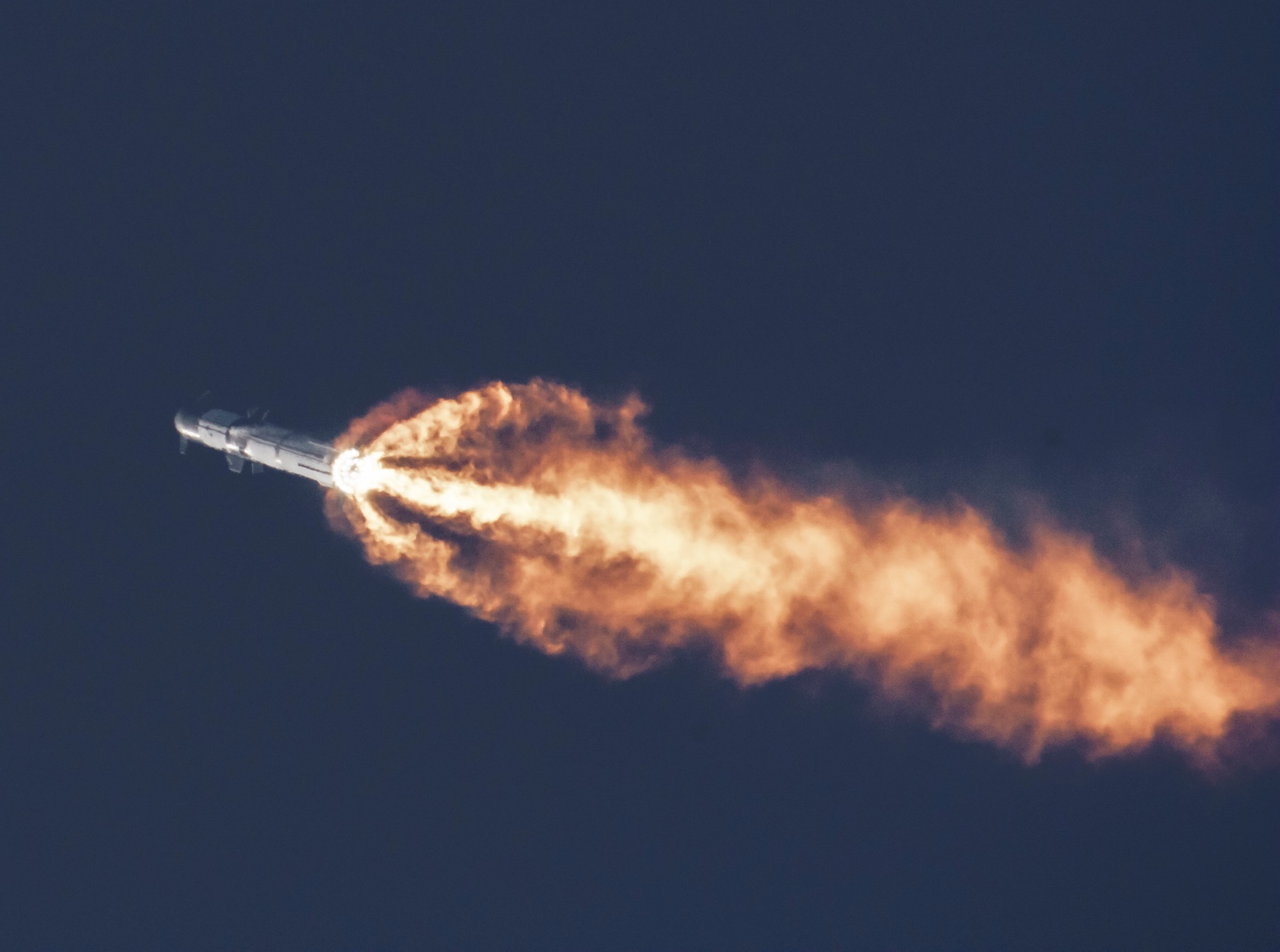WASHINGTON — SpaceX is changing the approach for separating the two stages of its Starship vehicle to increase payload performance before its next test flight, Elon Musk said June 24.
In an online discussion with Bloomberg journalist Ashlee Vance on Twitter, the social media company Musk owns, he said that SpaceX had recently decided to switch to a “hot-staging” approach where the Starship upper stage will ignite its engines while still attached to the Super Heavy booster.
“We made sort of a late-breaking change that’s really quite significant to the way that stage separation works,” Musk said, describing the switch to hot staging. “There’s a meaningful payload-to-orbit advantage with hot-staging that is conservatively about a 10% increase.”
Hot-staging, which has been used on Russian launch vehicles for decades, involves igniting the engines on one stage while still attached to its lower stage. Musk said that, for Starship, most of the 33 Raptor engines on the Super Heavy booster would be turned off, but a few still firing, when the engines on the Starship upper stage are ignited. Doing so, he said, avoids the loss of thrust during traditional stage separation, where the lower stage shuts down first.
Doing so requires some modifications to the Super Heavy booster. Musk said SpaceX is working on an extension to the top of the booster “that is almost all vents” to allow the exhaust from the upper stage to escape while still attached to the booster. SpaceX will also add shielding to the top of the booster to protect it from the exhaust.
“This is the most risky thing, I think, for the next flight,” he said of the new stage separation technique.
Besides the change in stage separation, Musk said SpaceX made a “tremendous number” of other changes to the vehicle, “well over a thousand.” He didn’t go into details about the changes, but did note the company was continuing work to upgrade the launch pad to avoid the damage caused by the first Starship launch April 20, such as a “steel sandwich” water deluge system. “We’re actually going for overkill on the steel sandwich and the concrete, so that should leave the base of the pad in much better shape than the last time.”
SpaceX also made improvements to the Raptor engines, with Musk describing the vehicle launching in April as using a “hodgepodge” of engines built over time. The Raptors on the new vehicles include changes to the hot gas manifold in the engine to reduce fuel leakage.
Those changes, he said, gave him more confidence in the success of the next launch. “I think the probability this next flight working, getting to orbit, is much higher than the last one. Maybe it’s like 60%.” In an online conversation in late April, he estimated a “better than 50% chance” of success on the next launch.
Musk did not commit to a specific launch date. “A lot of variables here that are outside of our control,” he said, an apparent reference to the Federal Aviation Administration launch licensing process. “We think, probably, the launch pad upgrades, and the booster and ship, are ready in about six weeks.” Musk, in that April conversation, said he expected to be ready to fly “in a couple months.”
Earlier in the conversation, Musk declined to comment on recent rumors that SpaceX was considering spinning out its Starlink satellite broadband business and conducting an initial public offering (IPO) of stock in it. Fox Business reported June 21 that SpaceX investors anticipated a spinout and IPO of Starlink this year so that Musk could raise money for other ventures, like Twitter.
Musk, asked about any plans for a Starlink IPO, declined to comment. “It would not be legal for me to speculate about a Starlink IPO,” he claimed. “I think it’s against regulations to talk with any kinds of specifics about a future public offering.”
Musk has previously played down any talk about spinning out Starlink and taking it public. He said in 2020 he was “thinking about that zero” in order to focus on making the broadband service a technical and financial success.
In an internal company meeting in June 2022, Musk said he did not know when SpaceX would take Starlink public, but estimated it would be at least three to four years.
